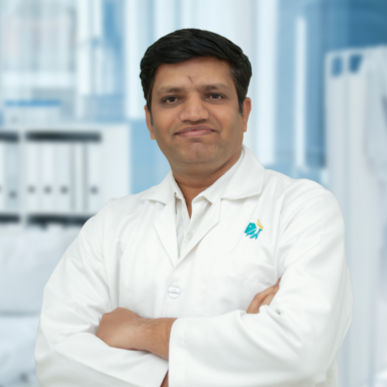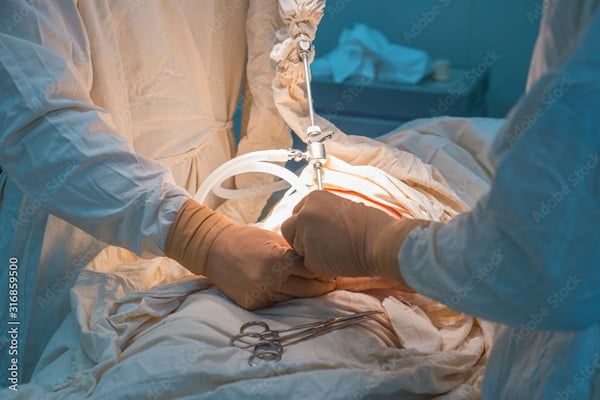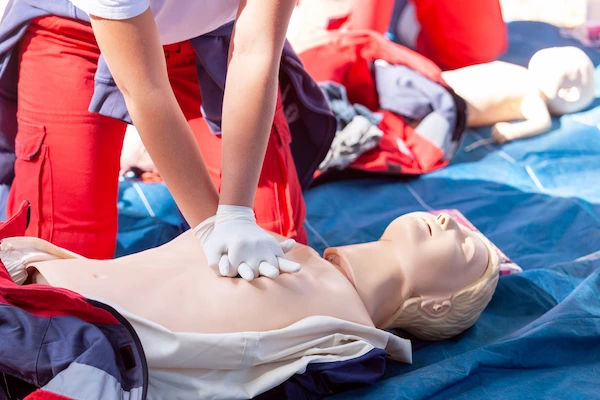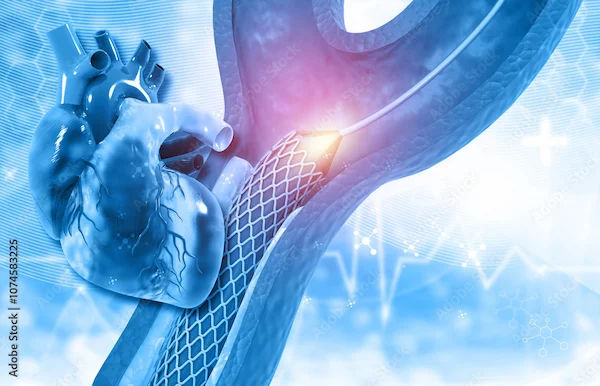What Precautions Should Be Taken After Bypass Surgery?
Learn the essential precautions to take after bypass surgery to ensure a safe and smooth recovery. Discover tips for diet, activity, wound care, and lifestyle changes that promote heart health and prevent complications.

Written by Dr. Dhankecha Mayank Dineshbhai
Reviewed by Dr. Rohinipriyanka Pondugula MBBS
Last updated on 13th Jan, 2026
.webp?tr=q-80,f-webp,w-350,dpr-2,c-at_max 700w)
Introduction
Undergoing bypass surgery is a significant step toward improving heart health, but the journey to full recovery requires careful attention and lifestyle adjustments. Whether you’ve just had the surgery or are caring for someone who has, understanding the essential precautions can help ensure a smooth and successful recovery. In this article, we’ll discuss immediate post-surgery care. lifestyle changes for long-term heart health, warning signs to watch for and when to seek medical help.
Precautions Post Bypass Surgery
Precautions to be taken post-bypass surgery are:
1. Immediate Post-Surgery Care (First Few Weeks)
The first few weeks after bypass surgery are crucial for healing. Here’s what you should focus on:
1. Follow Doctor’s Instructions Strictly
Take prescribed medications (blood thinners, cholesterol-lowering drugs, etc.) on time.
Do not skip doses or stop medications without consulting your doctor.
2. Take Care of the Incision Site
Keep the wound clean and dry to prevent infection.
Avoid lifting heavy objects or straining the chest area.
Watch for signs of infection (redness, swelling, pus, or fever).
3. Gradually Increase Physical Activity
Start with short walks (as advised by your doctor) to improve circulation.
Avoid strenuous activities like climbing stairs or driving for at least 4-6 weeks.
4. Manage Pain and Discomfort
Take pain relievers as prescribed.
Use a pillow to support your chest when coughing or sneezing.
Consult Top Specialists for Personalised Tips
2. Long-Term Lifestyle Changes for Heart Health
Bypass surgery is not a cure but a second chance to improve heart health. Adopting a heart-healthy lifestyle is key to preventing future complications.
1. Eat a Heart-Healthy Diet
Avoid: Fried foods, processed snacks, excess salt, and sugary drinks.
Include:
Fresh fruits, vegetables, and whole grains
Lean proteins (fish, chicken, beans)
Healthy fats (olive oil, nuts, avocados)
2. Exercise Regularly (After Doctor’s Approval)
Start with light activities like walking, then gradually increase intensity.
Aim for 30 minutes of moderate exercise most days of the week.
3. Quit Smoking & Limit Alcohol
Smoking damages blood vessels and increases heart risks.
If you drink, limit alcohol to 1 drink per day for women and 2 for men.
4. Manage Stress
Practise relaxation techniques like deep breathing, meditation, or yoga.
Engage in hobbies that bring joy and reduce anxiety.
5. Monitor Weight & Blood Pressure
Maintain a healthy weight to reduce strain on the heart.
Check blood pressure and cholesterol levels regularly.
3. Warning Signs to Watch For
While recovery is usually smooth, some symptoms require immediate medical attention:
Call your doctor if you experience:
Chest pain or tightness
Shortness of breath (worse than usual)
Fever or signs of infection at the incision site
Swelling in legs or sudden weight gain (could indicate fluid retention)
Irregular heartbeat or dizziness
4. When to Resume Normal Activities?
Recovery timelines vary, but here’s a general guide:
Driving: Usually after 4-6 weeks (check with your doctor).
Work: Desk jobs may resume in 6-8 weeks; physically demanding jobs may take longer.
Intimacy: Wait until your doctor confirms it’s safe (usually 4-6 weeks).
5. Regular Follow-Ups Are a Must
Your cardiologist will schedule follow-ups to monitor your progress. Do not miss these appointments, they help detect any issues early.
Conclusion
Bypass surgery is a life-changing event, but with proper care and lifestyle adjustments, you can enjoy a healthier, more active life. Remember to follow your doctor’s advice, eat well, stay active, avoid smoking, watch for warning signs and seek help if needed.
Consult Top Heart Surgeon
Consult Top Specialists for Personalised Tips

Dr. Pathuri Avinash
Cardiologist
6 Years • "DM- CARDIOLOGY IPGMER & SSKM, KOLKATA September 2017- September 2020 MD- INTERNAL MEDICINE MANIPAL ACADEMY OF HIGHER EDUCATION KASTURBA MEDICAL COLLEGE, MANIPAL May 2013 - May 2016 MBBS RANGARAYA MEDICAL COLLEGE,KAKINADA March 2006- March 2011"
Hyderabad
Apollo Hospitals Financial District, Hyderabad

Dr. Rajeev Garg
Cardiologist
30 Years • MD (MEDICINE); DIP. CARD ( NIMS ) DNB (CARDIOLOGY) MNAMS, FACC, FESC, FSCAI.
Hyderguda
Apollo Hospitals Hyderguda, Hyderguda

Dr. Praveen Subbanna
Cardiologist
10 Years • MBBS, M.D. (JIPMER. PONDICHERRY), DM (cardiology, SMS MEDICAL COLLEGE, JAIPUR)
Bengaluru
Apollo Hospitals Bannerghatta Road, Bengaluru

Dr. Prashant Adeppa
Cardiologist
10 Years • MBBS, MD General Medicine, DM Cardiology (Armed Forces Medical College)
Bengaluru
Apollo Hospitals Bannerghatta Road, Bengaluru
Dr. Praveen Jaiswal
Cardiologist
17 Years • MD(Medicine), DM(Cardiology)
Indore
Apollo Hospitals Vijay Nagar, Indore
Consult Top Heart Surgeon

Dr. Pathuri Avinash
Cardiologist
6 Years • "DM- CARDIOLOGY IPGMER & SSKM, KOLKATA September 2017- September 2020 MD- INTERNAL MEDICINE MANIPAL ACADEMY OF HIGHER EDUCATION KASTURBA MEDICAL COLLEGE, MANIPAL May 2013 - May 2016 MBBS RANGARAYA MEDICAL COLLEGE,KAKINADA March 2006- March 2011"
Hyderabad
Apollo Hospitals Financial District, Hyderabad

Dr. Rajeev Garg
Cardiologist
30 Years • MD (MEDICINE); DIP. CARD ( NIMS ) DNB (CARDIOLOGY) MNAMS, FACC, FESC, FSCAI.
Hyderguda
Apollo Hospitals Hyderguda, Hyderguda

Dr. Praveen Subbanna
Cardiologist
10 Years • MBBS, M.D. (JIPMER. PONDICHERRY), DM (cardiology, SMS MEDICAL COLLEGE, JAIPUR)
Bengaluru
Apollo Hospitals Bannerghatta Road, Bengaluru

Dr. Prashant Adeppa
Cardiologist
10 Years • MBBS, MD General Medicine, DM Cardiology (Armed Forces Medical College)
Bengaluru
Apollo Hospitals Bannerghatta Road, Bengaluru
Dr. Praveen Jaiswal
Cardiologist
17 Years • MD(Medicine), DM(Cardiology)
Indore
Apollo Hospitals Vijay Nagar, Indore




